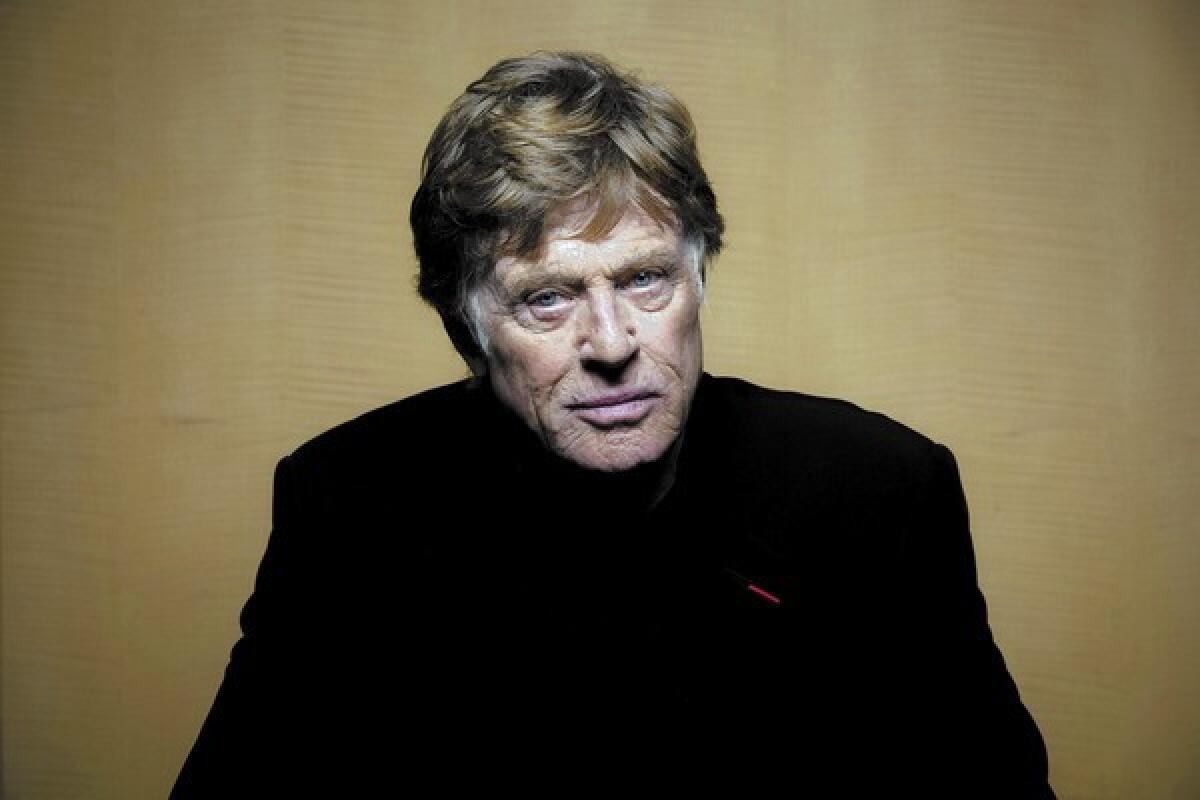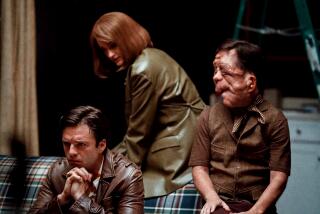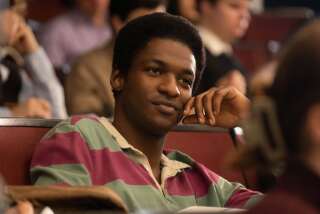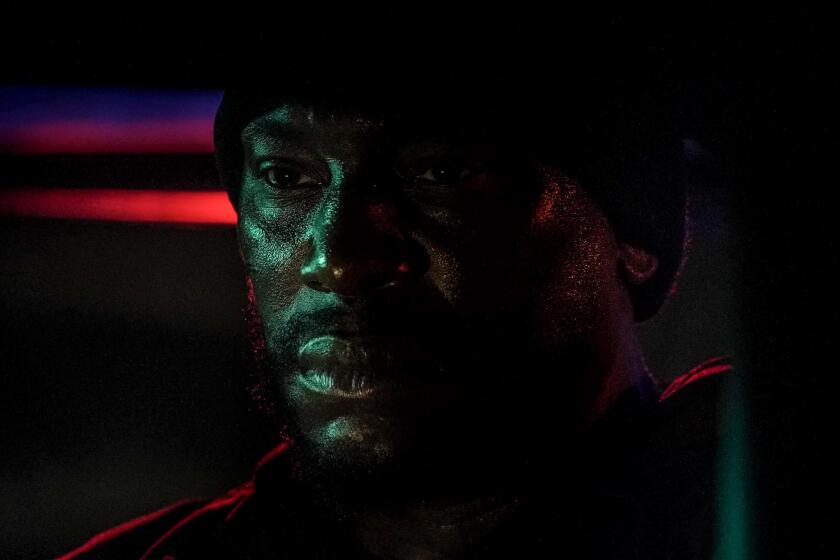Robert Redford, a face for the ages

The lines crease and arc, deeper they have grown, spooling out from lips, chin and eyes, which glimmer like blue flames in a vigil. The face is a map, a diary; a rough terrain once smooth, showing its courage in its frailties. It is still handsome — age can thieve only so much — but it makes you think of him many years ago in the roles of Gatsby, the Sundance Kid and the all too-content Hubbell Gardiner.
Robert Redford started so young, so perfect, an impossible mirror. But age has crept upon him. In his new film “All Is Lost,” Redford’s buffeted face needs no syllables to articulate the fate of Our Man, a lone sailor adrift on a broken boat. It is a face flinted against the sea, time and the elements. Every twitch and tic, wince and nod, carries a history tempered by failure, success, defiance, confidence, discontent, wonder and the limitless (very American) belief in resilience and possibility.
It is a face that draws us to the movies.
PHOTOS: Robert Redford: Career in pictures
“Now seventy-seven, Redford is in great shape, and the cheekbones and the jaw, despite a wrinkled shell, have held up — a visual sign of character surmounting age,” David Denby wrote in the New Yorker. “He does more acting in this movie than he has done in all his earlier movies combined. The anxiety in his eyes as death approaches is unsettling, since it may be something that Redford the man feels, too.”
Redford’s face has aged with the imagination of a generation, maybe two. The features are classic, alert, expectant, skeptical, a face from beach and ski slope but also at home in the polished mansions of Long Island. It often said more with its eyes than its lips, betraying flaws and imperfections — David Chappellet in “Downhill Racer” and Gardiner in “The Way We Were” — even as it appeared too virtuous for transgression, much like the America it reflected.
He was like the country he lived in ... things came too easily, Gardiner wrote in a college short story that was a voice-over in the latter film. That line seemingly summed up actor and nation, one’s image transposed upon another in an era when innocence succumbed to corruption and the darker angels that were always present but seldom acknowledged or conveniently avoided.
PHOTOS: Actors who’ve been turned down for famous roles
The face had no lines in 1967 when Redford starred with Jane Fonda in “Barefoot in the Park.” The country, bruised from the death of President John F. Kennedy, was afire with upheaval that would bring fresh assassinations. Protests over civil rights and the war in Vietnam demanded a new mask, and the face, still pretty, had to change. Redford’s Bill McKay, a legal aid lawyer who runs for, and surprisingly wins, a Senate seat in “The Candidate,” crests on an idealism that will collide with the realities hidden in the sly, coffee-stained smile of his politician father, played by Melvyn Douglas.
“What do we do now?” a bewildered McKay asks his campaign manager in the final scene after the votes have been counted. He wins, but does he? The question still haunts those who came of age in the 1960s. A similar unease would echo through “All the President’s Men” in which Redford channels Washington Post journalist Bob Woodward as he and Carl Bernstein unravel the Watergate scandal.
The good looks were intact, but the lines in the face grew more prevalent by “The Natural” in 1984, when President Ronald Reagan joked about bombing Russia and revelations about the Iran-Contra affair had yet to break. Redford played Roy Hobbs, a man with missteps in his past seeking redemption through baseball. Redford’s sharp gaze also focused on correcting larger wrongs. He did it with his crusading prison warden in “Brubaker” and his one-step-ahead-of-the-rest CIA spook “Spy Game.”
VIRTUAL TOUR: Hollywood’s Walk of Fame
The face was shrouded in a beard in “Jeremiah Johnson,” the mountain man who prefers the solace of the wilderness over the clamor of civilization. He trimmed it with a mustache in “Butch Cassidy and the Sundance Kid,” playing a quick-draw bank robber of few words who realizes his way of life is fast becoming extinct.
Redford’s critics regard him as an actor of limited range, a nonchameleon trapped by or too comfortable with the singular attributes that made him a star. But the actor, who founded the Sundance Film Festival in 1981, belies that notion, reminding us that the sum of who we are lies deeper than words.
The man in the sinking boat in “All Is Lost,” directed by J.C. Chandor, carries the ghost of his younger self. Redford utters only a few lines in a sailor’s quiet torment with himself and the ocean. From what little we can glean of Our Man, he does not seem particularly likable, alluding to slights and sins committed against family and friends over a lifetime. He moves with wearying precision; self-action is all that matters. The face — weathered, beaten, raw — is shaded with regret.
“There are some things which cannot be learned quickly, and time, which is all we have, must be paid heavily for their acquiring,” Ernest Hemingway once wrote. “They are the very simplest things and because it takes a man’s life to know them the little new that each man gets from life is very costly and the only heritage he has to leave.”
One feels Our Man has finally learned this. The aged, anguished face says as much amid the gale winds and battering waves.
More to Read
Only good movies
Get the Indie Focus newsletter, Mark Olsen's weekly guide to the world of cinema.
You may occasionally receive promotional content from the Los Angeles Times.










